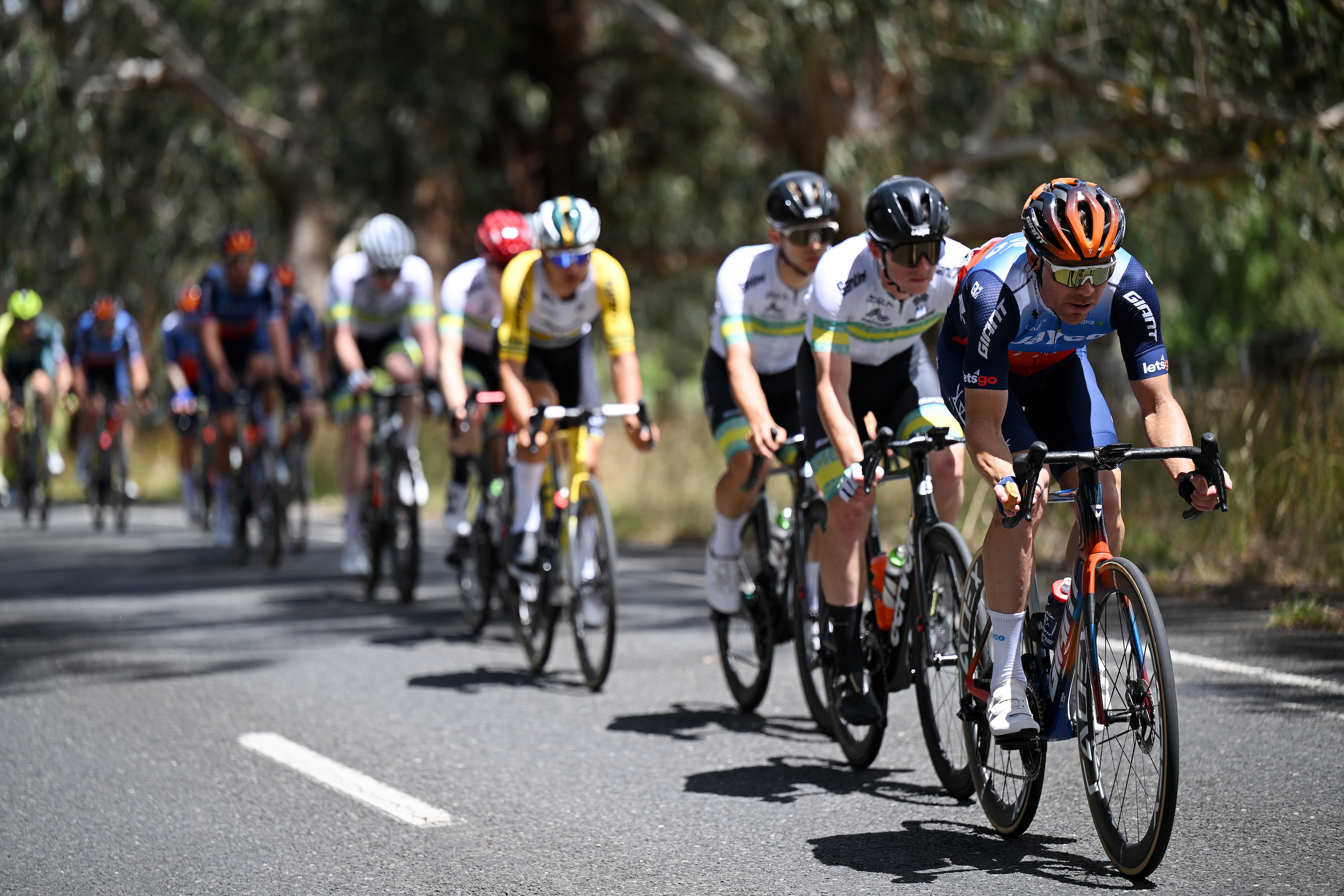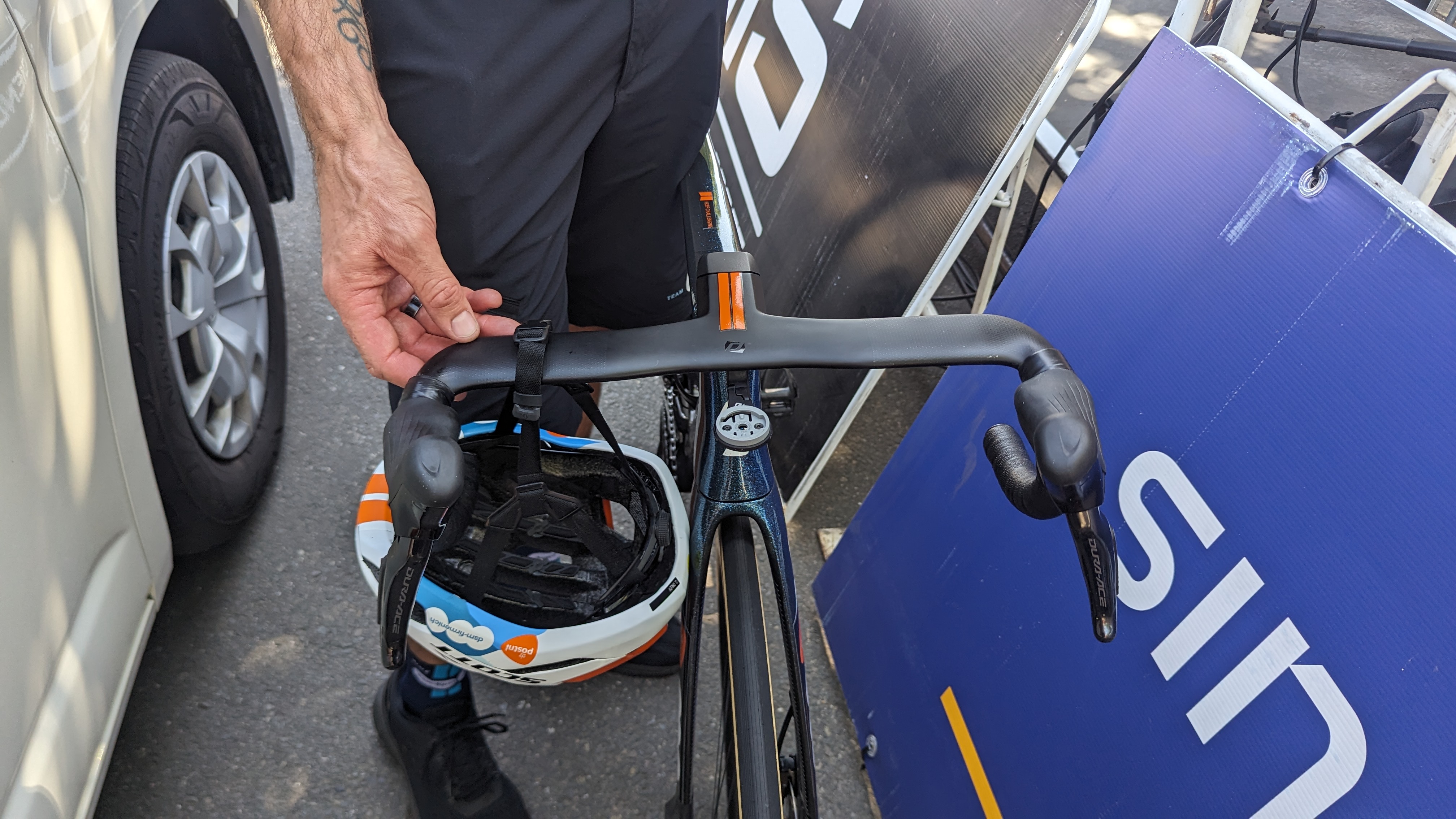
The issue of brake lever angles is all the rage. The levers are one of the hot topics the paddock at this year’s Tour Down Under, as UCI commissaires take a close interest in the hoods of the top riders. After the women were their first to have their handlebars examined by last week, the men’s WorldTour peloton are currently enjoying the same rigmarole.
The people in blue shirts inspect bikes with a 3D-printed tool, which clamps onto the hoods and drops of bikes. It allows for up to 10 degrees of inward rotation for the brake levers, and also checks how flared the drops of the handlebar are.
In recent years, many riders have tilted their hoods inwards, allowing them to narrow their body’s frontal area and creating a supposedly more aerodynamic position. However, it's been argued that when taken to the extreme the adjustments can make it more difficult to grip the hoods, and also pushes the brake levers beyond their capability.
In a statement shared last month, the UCI wrote: "Positioning the levers with an extreme inclination limits the braking capacity of the riders and constitutes a modification of the product beyond its intended use."
As a result, the checks have commenced, but it does not appear to be a perfect science yet, with both teams, riders and commissaires coming up against the regulations and the tool for the first time.
Intermarché-Wanty mechanic Aloïs Gevaert told Cycling Weekly that one commissaire had passed one bike, before the other official had failed it, due to their differing use of the tool. Naturally, there are teething issues.
Before the team's bikes were tested, five of seven failed, but adjustments were made in order to comply.
"After the test, they all passed," Lidl-Trek's mechanic, Rasmus Stigaard, said. "Before, I think we could only get two bikes through, but every bike is set out to the maximum.
"Right now, it's difficult to say how the UCI measures, but now that we've used the tool, we have an idea of how it is. We need to get the tool ourselves at some point."
Stigaard's omission that his bikes were now set with the maximum width is an interesting one, with some staff and riders that Cycling Weekly spoke to adamant that not only is having extreme brake lever angles a safety issue, but perhaps not a particular aero gain. Stigaard said that there was one rider at his team who has bristled at the new rule.

For Guido Scheeren, a Soudal Quick-Step mechanic, the fact that the UCI is effectively soft-launching the regulations on angles is a good thing, allowing for teams to adjust over the season
"[We had] no problems with brake levers," he said. "We had only one, and so we changed it how it had to be.
"The UCI will come with the rule, but they understand that it has to be tested with the teams and riders one year in advance, and then they will decide what happens if it's not [compliant]. I think it's good that they come with rules and try them in advance, just to see what happens, and what the teams say."
Teams are waiting for the tool to be available so they can perfect the position away from the glare of a race. CW witnessed dsm-firmenich PostNL setting their bars to the maximum allowed position - using the 3D printed tool - so that they could then measure it, in order to use this as a future benchmark.
"I don't think it's been a problem for us," Bora-Hansgrohe mechanic Marek Bajfus said. "We had one guy who had to change his position, we were not really sure if it was still legal. The question was how they were going to measure it. You have a different angle on the drops from the handlebar, so it's weird.
"It seems to be ok, no problem at all. [In reality] there's only about 10 riders in the WorldTour who are actually using extreme angles."







